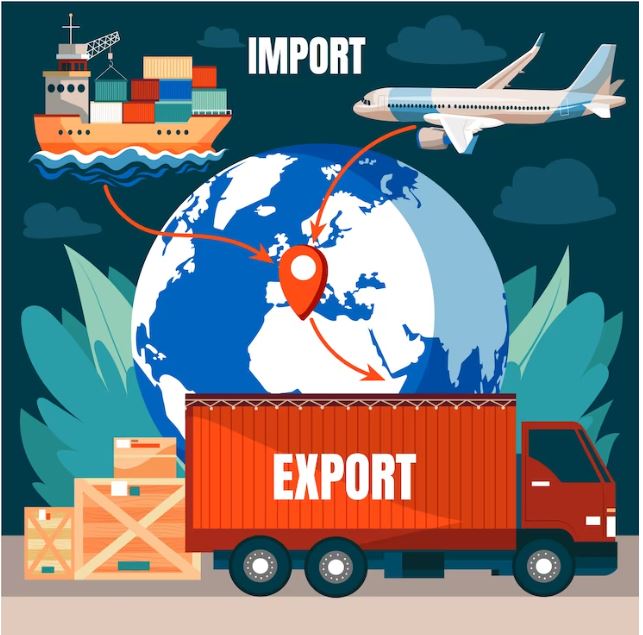Import Factoring
Import factoring is a financing solution for importers that involves the sale of their accounts payable (invoices) to a factoring company in exchange for immediate payment.
In an import factoring arrangement, the factoring company purchases the importer’s invoices from their suppliers, typically at a discount. The factoring company then assumes the responsibility of paying the suppliers, and collects payment from the importer at a later date. The importer pays the factoring company the full invoice value, plus interest and factoring fees.
Import factoring can provide several benefits to importers, including improved cash flow and the ability to negotiate better payment terms with suppliers. By receiving payment immediately, importers can use the funds to invest in their business or fulfill new orders, without having to wait for payment from their customers. Additionally, import factoring can help importers negotiate better payment terms with suppliers, as the factoring company assumes the responsibility of paying the supplier.
However, import factoring can also have some potential drawbacks. The cost of factoring can be higher than other financing options, and the factoring company may have strict requirements for the quality of invoices and creditworthiness of customers. Additionally, some suppliers may be hesitant to work with a factoring company, as it may be perceived as a sign of financial distress.
Overall, import factoring can be a useful financing solution for importers, particularly those with limited access to traditional financing options. It is important to carefully consider the costs and benefits of import factoring and evaluate whether it is the right solution for a particular business’s needs.
Benefits of Import Factoring
Import Factoring is a financial solution where a factoring company helps importers manage their international trade by facilitating payments to exporters and offering credit terms. Here are its key benefits:
1. Improved Cash Flow
- Importers can purchase goods without upfront payment, preserving their working capital.
- Credit terms provided by the factor allow importers to manage cash flow better and reinvest in other business operations.
2. Enhanced Negotiation Power
- With the factor handling payments, importers can negotiate better terms with exporters, such as discounts for timely payments or bulk purchases.
3. Simplified Payment Process
- The factoring company acts as an intermediary, ensuring secure and timely payments to exporters, reducing complexities in international transactions.
4. Risk Mitigation
- Factors often provide credit assessment of exporters, reducing the risk of dealing with unknown or less reliable suppliers.
- Some factors offer protection against currency fluctuations and non-payment by the exporter.
5. No Collateral Required
- Unlike traditional loans, import factoring doesn’t require collateral. The creditworthiness of the importer is the primary consideration.
6. Access to International Markets
- Import factoring supports businesses entering new markets by simplifying payment processes and managing credit risks associated with unfamiliar suppliers.
7. Improved Supplier Relationships
- Exporters receive payments promptly, improving trust and strengthening business relationships.
8. Administrative Efficiency
- Factoring companies handle payment collections, credit management, and other administrative tasks, freeing up the importer’s resources for core business activities.
9. Support for Small and Medium Enterprises (SMEs)
- SMEs, which often face challenges accessing traditional financing, can benefit from import factoring to compete in global markets.
10. Cost-Effective Financing
- Compared to bank loans or letters of credit, import factoring can often be more flexible and cost-efficient.
By leveraging import factoring, businesses can streamline their international trade processes, focus on growth, and maintain financial stability.
Eligibility for Import Factoring-
Business Entity Requirements
Must be a legally registered business (e.g., sole proprietorship, partnership, LLC, or corporation). Importers should have an established history of conducting international trade.
Established Trade Relationship
Importers must have a verified business relationship with reliable exporters or suppliers. Exporters should ideally agree to participate in the factoring arrangement.
Creditworthiness
Importers need to demonstrate good financial health and credit history. The factoring company evaluates the importer’s ability to meet payment obligations.
Purchase Volume
Import factoring is typically suitable for businesses with consistent or high purchase volumes to justify the costs and processes involved.
Stable Financial Records
Importers should provide audited financial statements, tax returns, and proof of stable cash flow.
Exporter/Supplier Agreement
Suppliers/exporters must agree to sell on open account terms (credit) and accept payment through the factoring company.
Nature of Goods
The goods being imported should have clear documentation, legal approval, and comply with import/export regulations. Perishable or high-risk items may not qualify, depending on the factoring company.
Documentation
Importers must furnish invoices, purchase orders, shipping and customs documents, and proof of goods’ authenticity and compliance with trade laws.
Business Size
Import factoring is ideal for small and medium enterprises (SMEs) but can also support larger firms. Startups with limited credit histories may face additional scrutiny but can still qualify with strong business prospects.
Geographic Scope
The factoring company should operate in the exporter’s and importe
